Filter News
Area of Research
- Advanced Manufacturing (1)
- Biology and Environment (1)
- Clean Energy (4)
- Fuel Cycle Science and Technology (1)
- Fusion and Fission (11)
- Fusion Energy (1)
- Isotope Development and Production (1)
- Isotopes (1)
- Materials (3)
- National Security (3)
- Neutron Science (1)
- Nuclear Science and Technology (9)
- Supercomputing (2)
News Type
News Topics
- (-) Nuclear Energy (32)
- (-) Statistics (2)
- 3-D Printing/Advanced Manufacturing (49)
- Advanced Reactors (12)
- Artificial Intelligence (30)
- Big Data (11)
- Bioenergy (24)
- Biology (23)
- Biomedical (18)
- Biotechnology (7)
- Buildings (15)
- Chemical Sciences (33)
- Clean Water (1)
- Climate Change (24)
- Composites (10)
- Computer Science (61)
- Coronavirus (17)
- Critical Materials (11)
- Cybersecurity (18)
- Decarbonization (20)
- Education (3)
- Element Discovery (1)
- Energy Storage (44)
- Environment (44)
- Exascale Computing (12)
- Fossil Energy (1)
- Frontier (16)
- Fusion (14)
- Grid (17)
- High-Performance Computing (31)
- Irradiation (1)
- Isotopes (19)
- ITER (2)
- Machine Learning (14)
- Materials (68)
- Materials Science (54)
- Mercury (2)
- Microscopy (18)
- Molten Salt (2)
- Nanotechnology (28)
- National Security (19)
- Net Zero (3)
- Neutron Science (56)
- Partnerships (27)
- Physics (24)
- Polymers (13)
- Quantum Computing (10)
- Quantum Science (28)
- Renewable Energy (1)
- Security (11)
- Simulation (11)
- Software (1)
- Space Exploration (3)
- Summit (21)
- Sustainable Energy (35)
- Transformational Challenge Reactor (4)
- Transportation (29)
Media Contacts
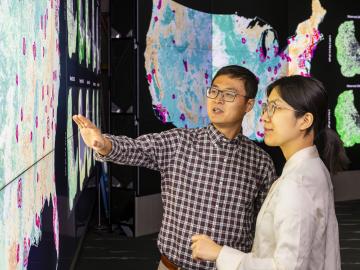
Scientists at ORNL completed a study of how well vegetation survived extreme heat events in both urban and rural communities across the country in recent years. The analysis informs pathways for climate mitigation, including ways to reduce the effect of urban heat islands.
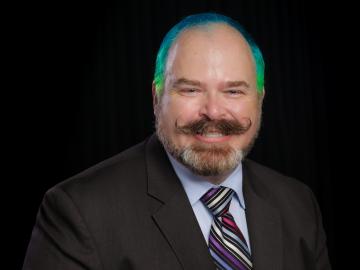
ORNL has named W. David Pointer, director of the Nuclear Energy and Fuel Cycle Division in ORNL’s Fusion and Fission Energy and Science Directorate. As director, Pointer will lead a world-class team of ORNL research professionals focused on addressing the challenges and opportunities presented by current and future nuclear energy systems.
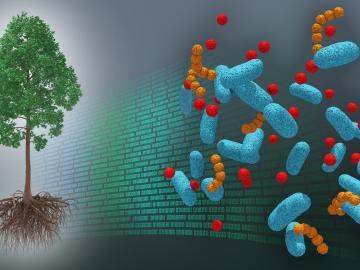
A first-ever dataset bridging molecular information about the poplar tree microbiome to ecosystem-level processes has been released by a team of DOE scientists led by ORNL. The project aims to inform research regarding how natural systems function, their vulnerability to a changing climate and ultimately how plants might be engineered for better performance as sources of bioenergy and natural carbon storage.
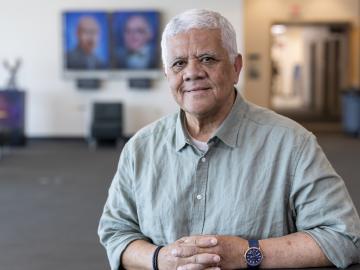
ORNL’s Luiz Leal of the Department of Energy’s Oak Ridge National Laboratory is the recipient of the 2023 Seaborg Medal from the American Nuclear Society.
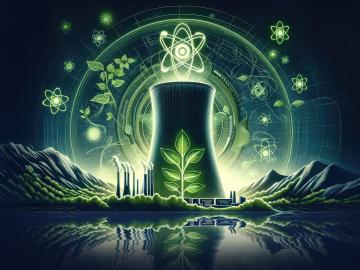
Anne Campbell, a researcher at ORNL, recently won the Young Leaders Professional Development Award from the Minerals, Metals & Materials Society, or TMS, and has been chosen as the first recipient of the Young Leaders International Scholar Program award from TMS and the Korean Institute of Metals and Materials, or KIM.
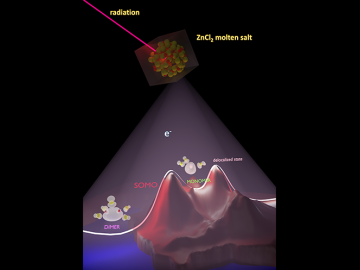
In a finding that helps elucidate how molten salts in advanced nuclear reactors might behave, scientists have shown how electrons interacting with the ions of the molten salt can form three states with different properties. Understanding these states can help predict the impact of radiation on the performance of salt-fueled reactors.
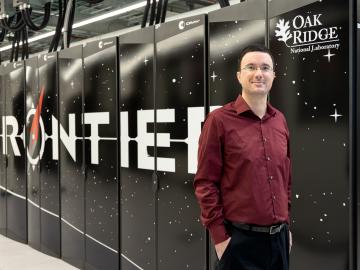
The Exascale Small Modular Reactor effort, or ExaSMR, is a software stack developed over seven years under the Department of Energy’s Exascale Computing Project to produce the highest-resolution simulations of nuclear reactor systems to date. Now, ExaSMR has been nominated for a 2023 Gordon Bell Prize by the Association for Computing Machinery and is one of six finalists for the annual award, which honors outstanding achievements in high-performance computing from a variety of scientific domains.
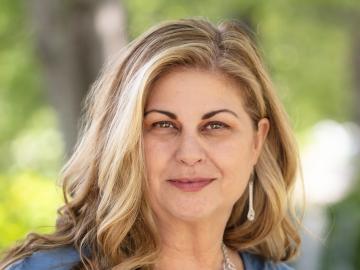
Rose Montgomery, a distinguished researcher and leader of the Used Fuel and Nuclear Material Disposition group at ORNL, has been selected to participate in the U.S. WIN Nuclear Executives of Tomorrow, or NEXT, class of 2023 to 2024.
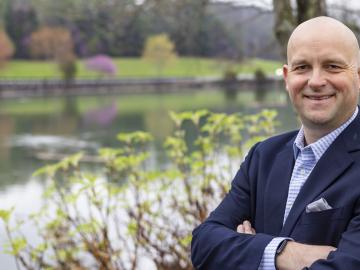
Leigh R. Martin, a senior scientist and leader of the Fuel Cycle Chemical Technology group at ORNL, has been named a Fellow of the American Chemical Society for 2023.
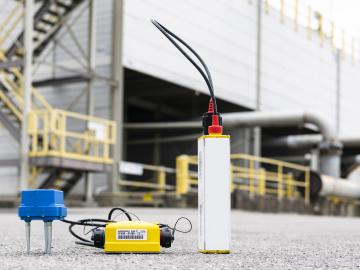
Like most scientists, Chengping Chai is not content with the surface of things: He wants to probe beyond to learn what’s really going on. But in his case, he is literally building a map of the world beneath, using seismic and acoustic data that reveal when and where the earth moves.




